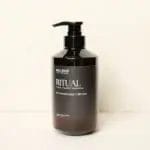
Blog – Scenting Tips & Insights
Is Aromatherapy Safe for Your Pets? What Every Pet Owner Should Know

You must have heard of how fragrance therapy can make you relax, but what about your pets? Although certain aromatherapy oils can be beneficial in soothing them, others are harmful. Dogs and cats have a good sense of smell; thus, even a small dosage of plant-based oils can have an influence on them. MScents cares about the safety of pets’ use of essential oils. This is why we will never say anything other than being careful. Always make sure that the oils you want to apply to your pet are pet-safe before applying them. Always ask your vet if you have doubts.
What You Should Know About Aromatherapy and Pets
Aromatherapy uses extracts of plants such as essential oils. These oils are very concentrated, and they operate in modes of inhaling, massage, or applying to the skin. However, pets are not like humans. They have a keener sense of smell. This implies that they can respond vehemently to some smells, especially those from plant extracts. Never put the essential oils on their bodies. Others might cause an allergy, some others might produce asthma attacks, or lead to seizures. As much as possible, select the correct oil and safely use it.
Popular Essential Oils That Are Unsafe for Pets
Not every aromatherapy oil is pet-friendly. It might smell good to you, but it is detrimental to your pets. Some oils may cause irritation to the skin or may lead to breathing problems or even to the liver. This is why we caution the customers on care. Such oils as tea tree, eucalyptus, citrus, and clove are types of essential oils that can be problematic. As soon as you feel that your pet is behaving unexpectedly, discontinue use of the oil. The key principle here to remember is to be careful and avoid dangerous kinds of essential oils, particularly with cats and little dogs.
Tea Tree Oil
Tea tree oil is another ingredient that is commonly applied in skincare, yet it is quite hazardous to pets. It has the ability to give tremors, weakness, vomiting, and even liver complications. A little can be toxic to your furry pet. When your pet accidentally licks or touches it, they may end up being very ill. It’s best to keep this oil far away from animals.
Eucalyptus Oil
Eucalyptus oil has a fresh, clean smell. However, in the case of pets, this is not so fresh. It may affect their breathing, particularly when they are already experiencing some problems such as asthma or other allergic reactions.
Also, ensure your pet is not around even when you use this oil in a diffuser. Use essential oils cautiously when inhaling them, as they have more influence on animals than humans. If your pet experiences coughing, sneezing, or sluggishness, discontinue its use immediately.
Citrus Oils
Orange, lemon, and bergamot are known as citrus essential oils, which can raise your mood, although they can sensitise the skin of your pet. They are also able to irritate the stomach of your pet when ingested or licked. It may appear harmless, but it is too powerful for the majority of animals with an intense olfactory sense. It is said that it is useful when it comes to stress, but it doesn’t justify its safety around a pet. Citrus oils should not be kept at easy reach, and aromatherapy involving citrus should not be implemented where there is a cat or dog.
Clove Oil
Clove oil is often found in natural remedy products, but it’s not a good choice for your pets. It’s very strong, and the use of essential oils can damage their liver or cause irritation. Even the smell can overwhelm smaller animals. Avoid using cloves in a diffuser, and do not apply essential oils containing cloves near your pets. In case of doubts as to the safety of an oil, it is better to avoid it.
Pet-Friendly Aromatherapy Oils
At MScents, we test our blends carefully. We aim to create holistic solutions that comfort both people and pets. Still, we always remind pet parents: there’s not enough research to determine long-term effects, so go slow. Here are some pet-friendly aroma therapy oils you can consider:
Lavender Oil
One of the most common stress essential oils is lavender oil. It has an excellent scent and is possibly a treatment for anxiety in people and animals. The majority of pet parents think it relieves them, especially when stormy weather is loud or vigorous, as in thunderstorms. A few drops of essential oils in a diffuser, when diluted properly, are usually enough. But again, always monitor your pet’s reaction carefully.
Peppermint Oil (Used Sparingly)
The peppermint possesses a sharp smell to make you alert. It is popular in massage products, but it is a little bit tricky with pets. In small amounts, the use of essential oils can assist a pet in breathing or feeling nauseous, but an excessive amount can cause irritation. Should you wish to attempt it, use natural, pure, and add much water. Place it far from where your pet sleeps or eats.
Frankincense
Frankincense is a gentle oil often used in integrative medicine. It’s known to promote peace and support the immune system. Some say it may help alleviate anxiety in dogs. It works well when applied topically in carrier oil or through a short diffuser session. It’s also a favourite among those who enjoy a more earthy aroma.
Chamomile Oil
The chamomile oil is known to be sedative. It can make human beings and pets relaxed. It is also widely utilised by many individuals in order to get rid of anxiety and tension. Chamomile may provide mild relief in the case of your dog getting stressed when travelling or during grooming sessions. Mix it with a carrier oil and never use too much. A little goes a long way.
Conclusion
Aromatherapy may also improve the mood and lower the stress level in pets, but not all oils are safe around pets. Some of the essential oils are safe, and others are dangerous. You should never put an essential oil on your pet when you are not sure of these compounds.
MScents only sells safe aromatherapy oils. We will always advise you to read labels and use oils cautiously. Stop immediately once your pet starts behaving funky after being exposed. Aromatherapy is complementary, not curative. And use it cautiously, affectionately, and with loads of care, particularly when your furry friend is involved.
Visit our shop and check out the essential oils available right now!








